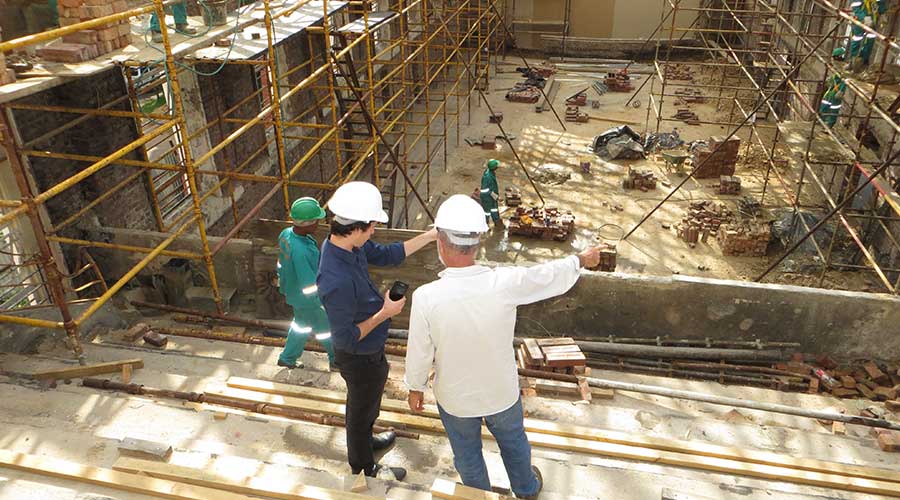
Audiovisual Design: How Do AV Engineers Play a Role in my Design?
An AV engineer in the past, had a skill set more focused on (surprise, surprise...) the audio and visual aspects of presentation and communication systems. Properly specifying components like speakers, amplifiers, audio processors, microphones, projectors and displays, were all in the wheel house of the AV engineer. Then control systems entered the space, and those engineers started to add knowledge on how to control many aspects of the system from button panels, then custom designed touch screens. These control systems ran on proprietary communication lines for a while, then they started to add standard network and IP connections. Now the AV engineer needs to understand networking, routers, switches and access points, and especially how to work with IT managers in charge of the customer network. This also comes into play when working with video conferencing codecs, like Cisco and Polycom. Next the "soft codec" was brought to the conference and meeting room arena, which is a term used to describe video conferencing applications running on "BYOD" devices, like laptops. Video conferencing services include Zoom, Skype for Business and WebEx. Now the AV engineer needs to deeply understand incorporating USB devices into their designs.
SOUND LIKE A LOT TO UNDERSTAND? IT IS.
The AV engineer has morphed into an integrated systems and communications technologist. He or She needs to understand best practices, and most importantly, the interoperability of many components and systems in order to create an experience for the end user that is powerful and effortlessly simple to use. Oh yeah, the AV engineer also needs to understand the user experience (UX), because intimidating and difficult technology never gets used.
HOW DO WE KEEP THIS ALL STRAIGHT? ONE APPROACH IS TO USE TEAMS AND CHECKLISTS.
Audiovisual Design & Engineering Teams.
AV engineers by nature have very different backgrounds. Some used to be live or studio audio engineers. Some have college degrees in engineering, some have degrees in art. Some never went to college, but years spent in the industry school of hard knocks learning the pitfalls of "AV design and deployment" is schooling enough. Understanding that the knowledge spread across an engineering team is more vast and deep than any one person can hope to learn in a lifetime allows for the team to learn from each other, and provide subject matter expertise across the many, many disciplines required to engineer a complete solution. Information sharing does not happen by accident, or without a structured effort set forth to continually educate the team.
Checklists add Quality Management to our AV Solution.
Choosing a quality management system (QMS) to implement within an AV engineering department requires a lot of time and commitment from the team. Understanding where system designs can run into trouble, and putting those items to a review checklist, makes sure that known design errors don't happen on the front end. This is critical in ensuring a "zero defect" system gets deployed for the customer and is exactly what they expected. The AV9000 QMS set forth by industry organization AQAV takes aim at poor quality.
How do AV engineers play a role in my design?
The individual engineer and the environment in which they work will ultimately drive the solution for the issues you are trying to solve for your users. But in general, without a deep understanding of the various technology fields mentioned previously, the absolute best solution for your user, your budget and the perceived success of your project can't even be brought to the table.
Next Steps
Have questions or looking to get started with an AV engineer? Get in touch with one of our AV experts today, or chat with us in the chatbox below! We look forward to talking with you.

